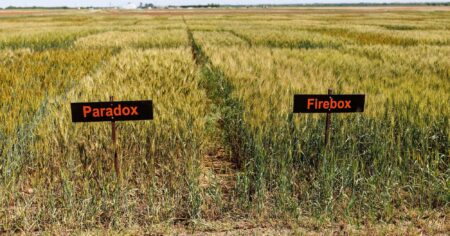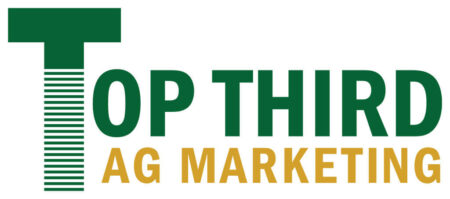“Sugar is poison and Americans need to know that it is poisoning us.”
Health and Human Services (HHS) Secretary Robert F. Kennedy, Jr., made that statement during a press conference on April 22. It’s a point he has made multiple times at other events and in X posts.
That same day, Secretary of Agriculture Brooke Rollins was visiting an American Crystal Sugar facility in North Dakota. The cooperative is owned by some 3,000 sugar beet growers in that state and neighboring Minnesota.
“North Dakota is rich in agriculture,” Rollins said during the tour. “Wheat, potato, sugar beet, and cattle farmers in the state are driving innovation and continuing the long legacy of feeding, fueling, and clothing the world.”
This juxtaposition has industry experts wondering what’s next, and it was a hot topic at this week’s North American Agricultural Journalists (NAAJ) meeting in Washington, D.C.
Lisa Foust Prater
Mainstream to MAHA Mom?
On Monday, Helena Bottemiller Evich, founder and editor-in-chief of Food Fix, a newsletter about food policy, moderated an NAAJ panel on Kennedy’s “Make America Healthy Again” (MAHA) movement. Among other initiatives, MAHA aims to restrict or eliminate the use of sugar, food dyes, and seed oils.
Bottemiller Evich said Rollins was initially seen as a more mainstream pick than Kennedy would’ve liked. “Now we see Rollins very much supporting some of the MAHA agenda items, and also at the White House a couple of months ago, she called herself a ‘MAHA Mom,'” she said.
That signaled a possible change in how USDA and HHS are collaborating. “HHS and USDA have traditionally been pretty independent,” Bottemiller Evich said, other than co-authoring dietary guidelines.
Rollins has publicly stated she intends to work with Kennedy on reforming the Supplemental Nutrition Assistance Program (SNAP), including restricting or possibly banning the purchase of junk food and sugary drinks with those funds.
Multiple states have requested waivers from USDA to go ahead and implement those policies, which Kennedy has publicly encouraged. At a press conference in West Virginia, he invited governors from those states to celebrate with him at the White House this fall.
Lisa Foust Prater
Who’s Running SNAP?
Shannon Campagna is the president of Portfolio Strategies LLC, a government affairs consulting firm with clients in the consumer packaged goods (CPG) and food industries, including beverages and confections. During the NAAJ MAHA session, she expressed concerns over Kennedy’s statements. “He’s not in charge of SNAP, and he really seems to have a hard time remembering that,” she said.
“I think the food industry feels like they’re on an island … and no one’s coming to help us,” Campagna continued. “Government has at least been somewhat neutral and the industry felt like there was at least an opportunity to bring our concerns to them. We don’t currently feel like that.”
Members of Congress also expressed concerns over Kennedy’s involvement with SNAP Tuesday at press conferences with NAAJ members on Capitol Hill — the same day Kennedy and Rollins were touring a Texas farm together.
Chairman of the Senate Agriculture Committee John Boozman (R-AR) said, “A lot of people in the country are concerned about what we’re eating and the fact that we’re not the healthiest country in the world.”
Still, he continued, “I think we have to be careful about going too far. Some of the things that (Kennedy) is talking about don’t really fall within his jurisdiction.”
Boozman expressed the need for moderation and science-based evidence. “Sugar’s like everything else, it needs to be done appropriately, but saying it’s poison is pretty extreme,” he said. “Right now, I think a lot of the things that are being said, perhaps the science and the common sense doesn’t really back them up.”
House Agriculture Committee Chairman Glenn Thompson (R-PA) expressed similar sentiments to NAAJ members. “I certainly respect the individual’s personal opinion, and he’s also the highest ranking health official,” he said. “I’d love to have a day to just explain to (Kennedy) just how healthy our commodities are that we produce. Everything in moderation.”
Lisa Foust Prater
What’s Next?
These potential policy reforms would be bad news for the sugar industry. Rollins, who represents 11,000 American farmers growing sugar beets and sugar cane, has yet to make an official statement on MAHA’s stance on sugar.
According to The Sugar Association, the U.S. produces 8.1 million metric tons of sugar every year, with 55% coming from sugar beets and 45% from sugar cane. Two million acres are planted with the two crops, and the American sugar industry supports 142,000 jobs in 22 states.
At the same time these reform initiatives are being announced, staff at government agencies including USDA and HHS are being cut, leaving questions about how changes could even be implemented.
Brian Ronholm is the director of food policy for Consumer Reports, a nonprofit that conducts independent product testing and consumer research. During the MAHA panel, he told NAAJ members that several of the priorities Kennedy has announced are also issues his organization is following, like food, chemicals, food additives, and food dyes.
“I think a lot of consumer groups are just kind of wondering how things are going to play out,” Ronholm said. “What happens beyond the initial pep rally? What happens beyond the initial kind of big announcement? Does that eventually translate into meaningful action in any way, and what’s the process for that meaningful action? … It’s one thing to announce you’re going to take action on a particular issue, but if that issue area isn’t supported by adequate resources and staffing, what happens after that?”


:max_bytes(150000):strip_icc()/TaylorsFireworkssign-c3dd3eb41cc646c593dbebfee850bdc0.jpg)

:max_bytes(150000):strip_icc()/diseaseplaybookcorntarspot-fb7ff9d7c32e4e63b3e5e97dbe406eeb.jpg)


:max_bytes(150000):strip_icc()/female-farmer-hold-big-and-small-sugar-beets-in-hands---close-up-1181480363-3cd4ff61f1c943dd954b2188b2d25355.jpg)


:max_bytes(150000):strip_icc()/IMG_6780-a50022e918c94a9e8e8e517aa42ee9c8.jpeg)
